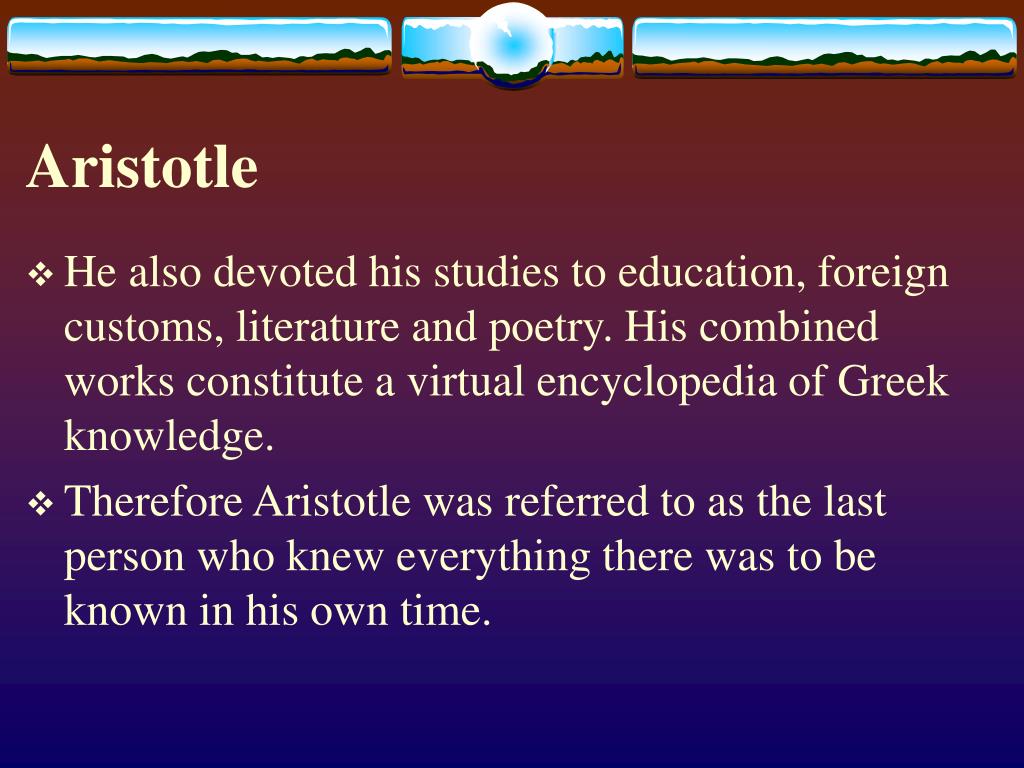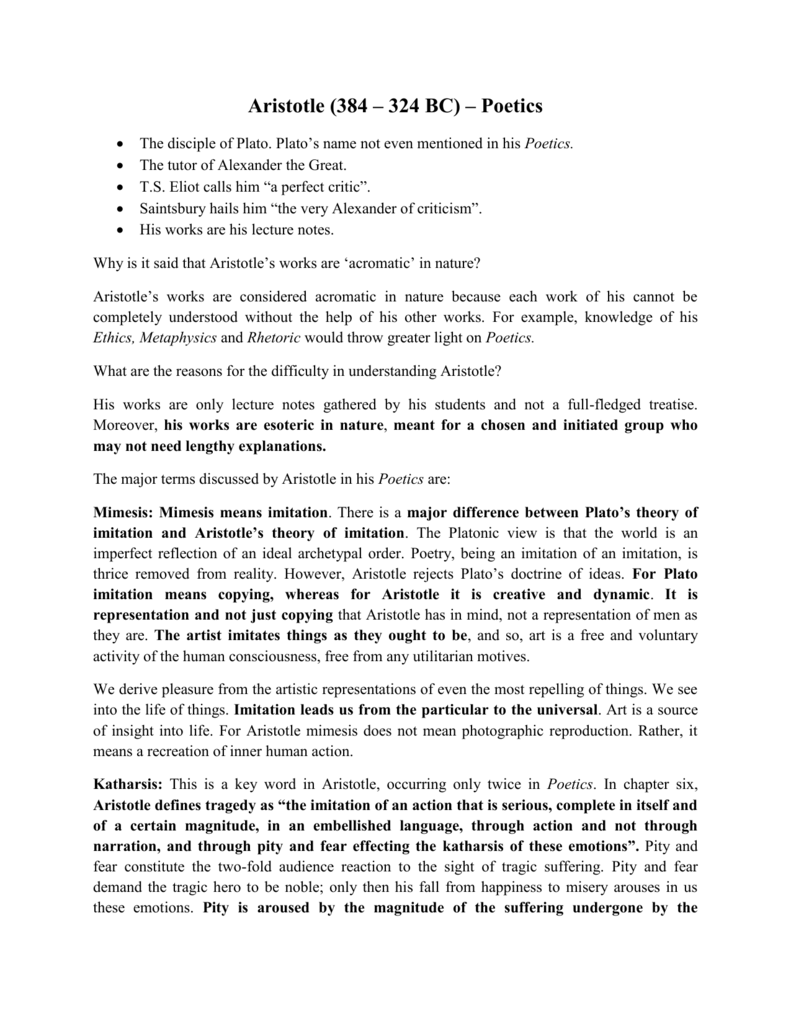

The poet must imitate either things as they are, things as they are thought to be, or things as they ought to be. Finally, the 'heroic measure' of epic poetry is hexameter, where tragedy often uses other forms of meter to achieve the rhythms of different characters' speech.Īristotle also lays out the elements of successful imitation. Second, epics often cannot be presented at a single sitting, whereas tragedies are usually able to be seen in a single viewing. First, an epic poem does not use song or spectacle to achieve its cathartic effect. There are a few differences between tragedy and epic, however. Tragedy and Epic poetry fall into the same categories: simple, complex (driven by reversal and recognition), ethical (moral) or pathetic (passion).

Second, the hero must have propriety, or 'manly valor.' Thirdly, the hero must be 'true to life.' And finally, the hero must be consistent.

First, the hero must be 'good,' and thus manifest moral purpose in his speech. When it comes to character, a poet should aim for four things. All three elements coalesce to create "catharsis," which is the engenderment of fear and pity in the audience: pity for the tragic hero's plight, and fear that his fate might befall us. Suffering is a destructive or painful action, which is often the result of a reversal or recognition. Recognition, meanwhile, is the change from ignorance to knowledge, usually involving people coming to understand one another's true identities. Reversal is an ironic twist or change by which the main action of the story comes full-circle. Plot also must contain elements of astonishment, reversal (peripeteia), recognition, and suffering. A plot must have a beginning, middle, and end it must also be universal in significance, have a determinate structure, and maintain a unity of theme and purpose. Plot is 'the soul' of tragedy, because action is paramount to the significance of a drama, and all other elements are subsidiary. Epic poetry, on the other hand, imitates 'noble' men like tragedy, but only has one type of meter - unlike tragedy, which can have several - and is narrative in form.Īristotle lays out six elements of tragedy: plot, character, diction, thought, spectacle, and song. Comedy, on the other hand, shows a 'lower type' of person, and reveals humans to be worse than they are in average. Aristotle defines poetry very broadly, including epic poetry, tragedy, comedy, dithyrambic poetry, and even some kinds of music.Īccording to Aristotle, tragedy came from the efforts of poets to present men as 'nobler,' or 'better' than they are in real life.

He defines poetry as a 'medium of imitation' that seeks to represent or duplicate life through character, emotion, or action. Aristotle's Poetics seeks to address the different kinds of poetry, the structure of a good poem, and the division of a poem into its component parts.


 0 kommentar(er)
0 kommentar(er)
